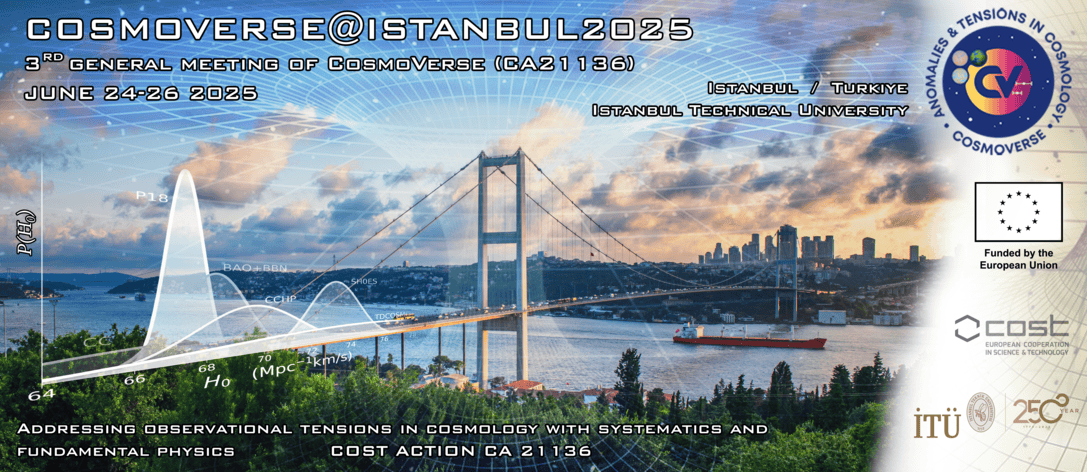Speaker
Description
Earlier studies investigating the allowed fraction of dark matter as primordial black holes (PBHs) tend to completely rule out PBHs with masses smaller than \~10⁻¹⁵ solar masses. This is due to the lack of evidence for Hawking radiation coming from the final evaporation stages of such small PBHs. These limits, however, make the key assumption that these PBHs can be modelled as uncharged, non-rotating Schwarzschild black holes. This talk concerns changes to these lower mass bounds when charge is included i.e., by going to Reissner–Nordström black holes as models for PBHs. In particular, the analysis presented here assumes a "dark" U(1) charge (assumed to be present in the early universe), and employs the Hiscock and Weems model for charged black hole evaporation to properly account for the Schwinger effect. By assigning a heavier dark electron mass and/or increasing its charge, this approach not only suppresses Hawking radiation but also mitigates Schwinger pair production, effectively extending the lifespan of PBHs beyond the age of the universe, bypassing the conventional wisdom that such small-mass black holes would have evaporated entirely by now.
Based on https://arxiv.org/abs/2503.20696

